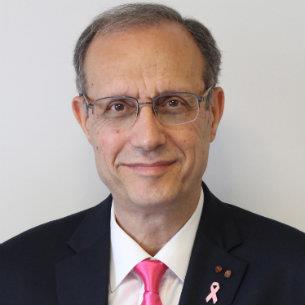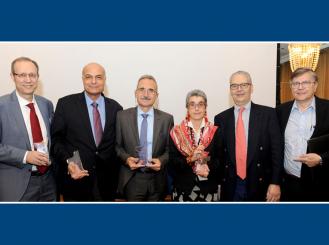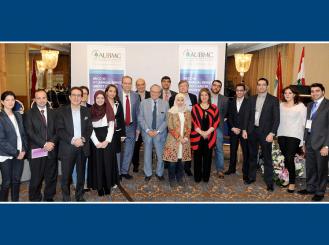For the last several years, the Middle East has been center of political and violent turmoil. Whenever Middle Eastern capital cities are mentioned in the news, the stories are typically about disputes, violence, explosions, killings, victims, destructions, peoples’ displacement, refugees, misery. It is for this reason that we decided to change the name of our American University of Beirut Breast Cancer Conference (AUB BCC) to the Beirut Breast Cancer Conference (BBCC) in the hopes that we can make the name of Beirut, and other Middle Eastern capital cities, become associated with advancement of science, research, and humanity rather than violence and wars.
The news from troubled regions does not usually portray the daily lives of the peoples living there. People often try to lead normal lives. People may be risking their lives, but they struggle to lead a normal life. Patients come to see us. They want to be treated in the best possible way. Instability is variable from region to region, country to country, city to city, neighborhood to neighborhood. People travel to safe areas and to reputable physicians and medical centers for treatment. Patients come from Iraq and Syria for treatment in Lebanon. However, those who travel long distances to get treated are either affluent and can financially afford expenses, or they sell their belongings to pay out-of-pocket money for treatment. Many patients tell us they sold their house, sold their car, to come pay for expenses of hospital treatment and drugs. There are no insurance companies who pay for their expenses. When they do not have the means, patients stick to where they are, and many places do not have adequate and quality infrastructures left, nor do they have enough well-trained physicians and surgeons to take care of them. The case of Syrian refugees is the worst. Syrian patients with a cancer diagnosis have no support from international agencies like United Nations High Commissioner for Refugees (UNHCR). They depend on local hospitals and governments to absorb losses related to the costs of their care, if they get it.
In the Middle East, physicians and surgeons, including medical oncologists, go to work daily. We go to our clinics and hospitals and treat patients. We teach medical students. We do research. We organize conferences. Many of us attend international meetings. We run health awareness campaigns. Many of us work with health authorities to improve infrastructures and quality care. Many institutions make plans for the future as if they are in a very peaceful environment like the United States or Europe. For example, the American University of Beirut Medical Center (AUBMC) has a very ambitious AUBMC 2020 plan that is progressing superbly well and attracting very generous donors.
It is with this international scientific spirit and vision that American University of Beirut, like other medical centers and scientific societies, organizes regular meetings for Continuing Medical Education (CME) and improvement of the care of patients with cancer in Lebanon and the region. The Breast Center of Excellence of the Naef K. Basile Cancer Institute of AUBMC, organized its fourth annual breast cancer conference, BBCC-4, this year. The success and impact of this meeting was measured by the number of attendees (230 physicians, surgeons, radiologists, pathologists, fellows, residents, and students), faculty and attendees from Lebanon, Egypt, Iraq, Jordan, Saudi Arabia, Switzerland, and the U.S., its multidisciplinary focus on breast cancer, live interactive discussions, tumor boards, and case presentations, as well as posters and oral presentations by young oncologists and residents about local and international cancer research issues. The meeting also included sessions with oncology nurses and other staff nurses, oncology pharmacists, and non-governmental organizations (NGOs) involved in awareness campaigns, fundraising, support groups, and patient advocacy, as well as Minister of Health Mr. Wael Abou Faour and TV celebrities Mr. Neshan Haroutiounian and Ms. Jacqueline Chehwan.
Goals and achievements of such meetings are steps forward and are in line with the ASCO International portfolio of programs and vision for international exchange of knowledge, dissemination of education with an impact, and reduction of disparities in patient outcome worldwide. Such meetings are to be encouraged. They also serve as vehicles for caring scientific interactions, networking, and peace between people and nations!




Recent posts